Dennis S. Charney, M.D., is Anne and Joel Ehrenkranz Dean of the Icahn School of Medicine at Mount Sinai and president for academic affairs for the Mount Sinai Health System. He is a world-renowned expert in the neurobiology and treatment of mood and anxiety disorders who has made fundamental contributions to the understanding of human anxiety, fear, depression, and resilience, and has played a key role in the discovery of new treatments for mood and anxiety disorders.
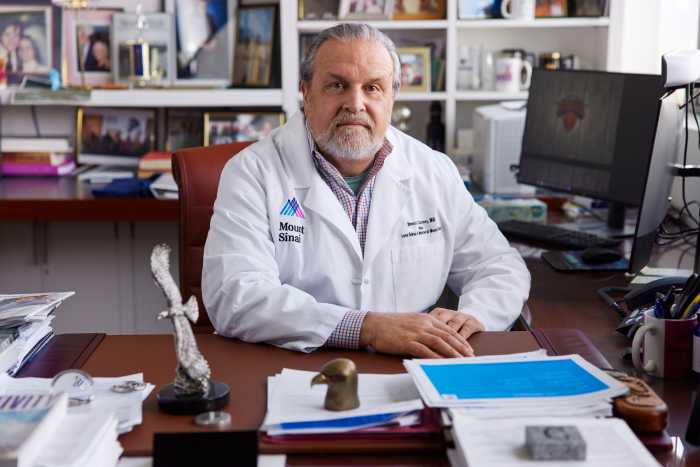
Dennis Charney
Anne and Joel Ehrenkranz Dean, Icahn School of Medicine at Mount Sinai | President for Academic Affairs, Mount Sinai Health System

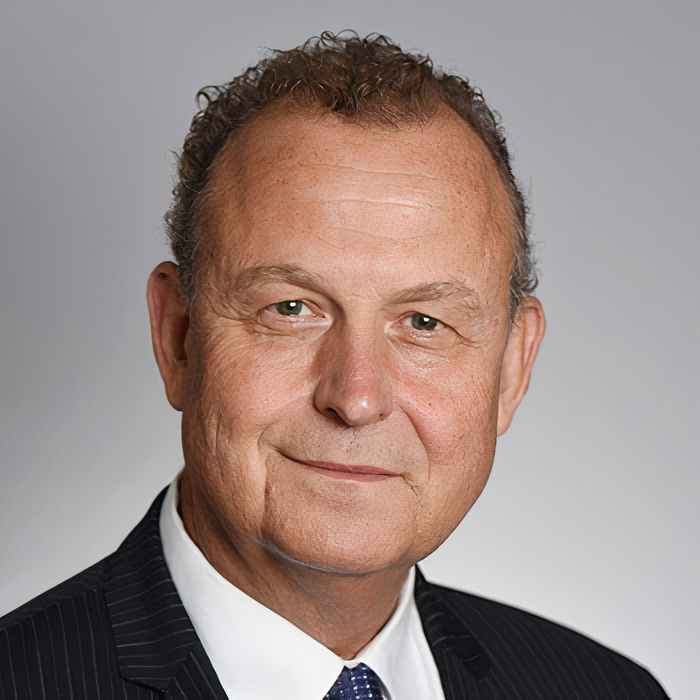
Christopher P. Comfort
President and CEO, Calvary Hospital

Dr. Christopher P. Comfort is the president and CEO of Calvary Hospital, with over four decades of medical experience. He has played a pivotal role at Calvary, initially as the medical director in 1999 and then as COO from 2019 to March 2023. Under his leadership, the hospital achieved Joint Commission accreditation, expanded its community care through Calvary Hospice, and formed key partnerships. Dr. Comfort advocates for palliative and hospice care, working to enhance accessibility to these services for those in need.
What influenced you to pursue a career in the health care field?
It was more of a “who” than a “what.” My uncle John was a family practitioner in Tacoma, Washington, who faithfully served his community which he adored. At 95, he’s still with us and is a perpetual role model to me. With a person like that to look up to, what else could I do but go into medicine?
What is the biggest challenge currently facing New York’s health care system?
There is a need for comprehensive and holistic palliative care services that address not only the physical needs of patients but also the emotional and psychological support for both patients and their families. Ensuring that palliative care is integrated effectively and meaningfully into the health care system, especially at-home care, can be a significant challenge, as it requires a shift in the way health care services are provided to encompass a more patient- and family-centered approach. This challenge will also include updating the Medicare and Medicaid system to be more responsive to the real costs of care in our community.
How do you describe your position to people outside of the health care industry?
I’m in a unique position leading Calvary Hospital as it’s the only fully accredited acute care specialty hospital in the U.S. exclusively providing palliative care for adult patients with advanced cancer and other life-limiting illnesses. As an active physician and CEO, I wear many hats, but patient care is at the heart of every day. Discussing life and death is never easy, and each person’s journey is unique, shaped by their experiences, circumstances, and hopes. Over the years I’ve found my career demands compassion, patience, courage, empathy, openness, and truthfulness from everyone involved.
What can policymakers do to ensure equitable access to quality health care?
I believe we are due for a complete review of the Medicare Hospice Benefit system as well as Medicaid here in New York State. Both need to be reevaluated, with hospice and palliative care better integrated into the broader health care continuum. In practice, we’ve also seen issues with current payment structures and collaboration with payers. Adjusting this process is essential to ensuring equitable access to high-quality hospice care that aligns with the evolving needs of patients and families because every person deserves medical and emotional support at the end of their life.
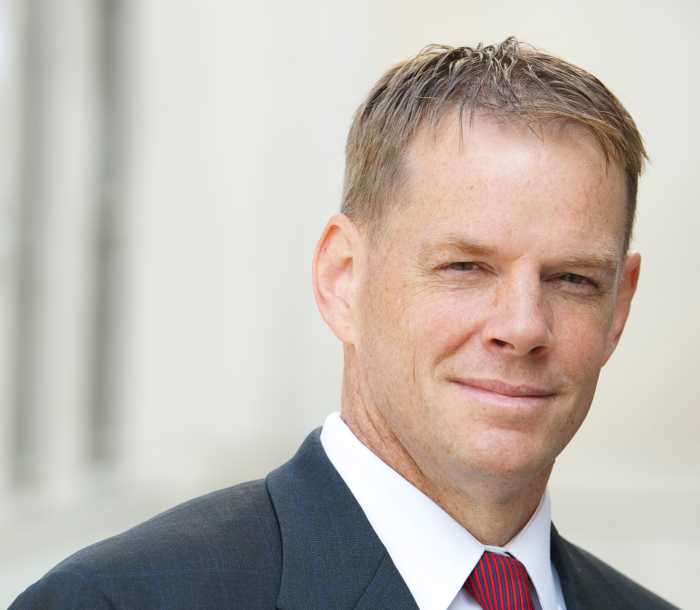
Tom Connolly
Managing Partner, Bolton St. Johns, LLC

Beginning in the NYS Assembly, Tom negotiated and wrote many of the most significant state laws relating to health care, including: the Medicaid budget; the Health Care Reform Act (HCRA); the Medicaid managed care law; the Early Intervention program; and provider prompt payment laws. Tom also served as director of State Governmental Relations and Health Finance for the Greater New York Hospital Association (GNYHA) and vice president for Managed Care and Graduate Medical Education for Healthcare Association of New York State (HANYS).
What is the biggest challenge currently facing New York’s health care system?
New York State only pays for about seventy percent of the cost of care for low income New Yorkers whose care is covered by Medicaid. There is no reason these individuals’ care should be worth so much less than what is paid by health insurers or the federal government. By refusing to fully cover the cost of care, New York undermines the financial stability of the providers serving these communities.
What can policymakers do to ensure equitable access to quality health care?
To ensure health care justice for all New Yorkers, to reduce health care disparities and improve health outcomes, particularly for low-income communities, New York could take the simple step of making sure that Medicaid pays 100% of the cost of care.
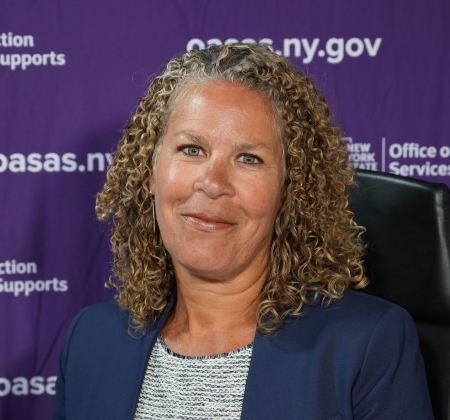
Chinazo Cunningham
Commissioner, New York State Office of Addiction Services and Supports

Dr. Chinazo Cunningham is an internal medicine and addiction medicine physician and has over 20 years of experience providing care, developing programs, conducting research, and training physicians, focusing on addiction treatment. She led one of the first clinics in the United States to integrate opioid addiction treatment in primary care. She has led several research studies and published numerous articles on treating addiction. She has also served on and chaired numerous national advisory committees.
What influenced you to pursue a career in the health care field?
My mother was a public school teacher who worked with at-risk children. I learned from her the importance of helping people who are marginalized and facing challenges. That played a major role in influencing my career path to work with those who are underserved. I was very much impacted by how the HIV crisis devastated individuals, families and communities. This motivated me to help those who are marginalized and stigmatized get access to medical care.
What is the biggest challenge currently facing New York’s health care system?
One of the biggest challenges in the addiction field is the proliferation of fentanyl in the drug supply. Fentanyl is present in most overdose deaths in New York State. We also continue to address stigma in addiction treatment–stigma against people with addiction, and stigma against available treatment. Despite the overwhelming safety and effectiveness of medication treatment for addiction, opposition against it remains a challenge.
How do you describe your position to people outside of the health care industry?
I lead an agency that oversees addiction services across New York State, which includes regulating, certifying, funding and supporting prevention, treatment, harm reduction and recovery services. New York State’s system of addiction services is among the largest in the United States, includes over 1700 programs, and serves nearly 700,000 individuals.
What can policymakers do to ensure equitable access to quality health care?
We need to be using a data-driven approach to understand which populations are at the highest risk of addiction and overdose. We must ensure they have access to services and support to improve their health and their lives. At OASAS, we have established the Division of Justice, Equity, Diversity and Inclusion to oversee this work across the agency and the field of addiction.
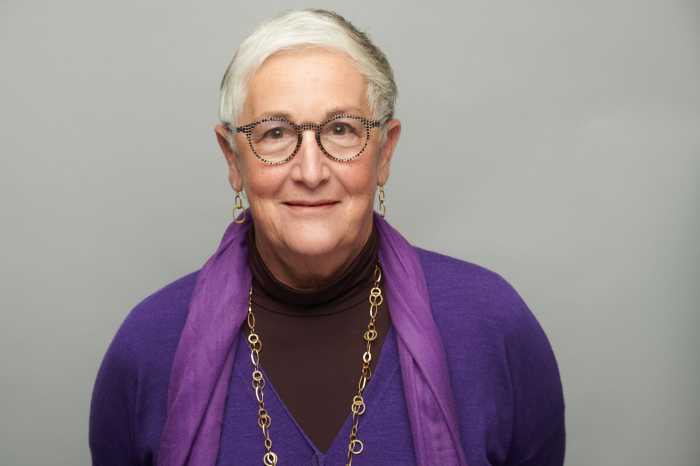
Lisa David
President and CEO, Public Health Solutions

Lisa David is president and CEO of Public Health Solutions, New York City’s largest public health nonprofit organization. Over the past two years, Lisa has championed some of the most pressing public health challenges faced by our city and nation, including reproductive health care access following the Dobbs decision, the dismantling of the public health safety net in the wake of COVID-19, and ensuring the health and wellness of migrants arriving in New York seeking asylum.
What is the biggest challenge currently facing New York’s health care system?
With over 100,000 individuals and families newly arriving in NYC, the safety net that ensures their health and gets them off to a good start has been incredibly strained. Lisa has mobilized PHS to get critical resources to people as close to their arrival date as possible. Partnering with NYC, PHS has been able to establish outreach to family shelters, ensuring they are enrolled in critical public health services like WIC, SNAP, and health insurance.
What can policymakers do to ensure equitable access to quality health care?
Policymakers can ensure equitable access to quality health care by protecting and strengthening New York’s safety net as public health resources created during the peak of the pandemic are now being dismantled. Lisa has been at the forefront of PHS’ undertaking to build a critical and long-overdue piece of public health infrastructure for NYC — WholeYouNYC, a coordinated network of hundreds of community-based organizations that connects residents to resources in the community via technology.

Lisa M. DeAngelis
Chief Physician Executive, Memorial Sloan Kettering Cancer Center

Lisa DeAngelis, M.D.,is the chief physician executive of Memorial Sloan Kettering Cancer Center (MSK) and an internationally recognized expert in brain cancer and the neurological complications of cancer treatment. During her 38 year tenure at MSK, she served as chair of the department of neurology, and co-founded MSK’s Brain Tumor Center. She’s a member of the National Academy of Medicine and a fellow of the American Academy of Neurology and the American Neurological Association.
What influenced you to pursue a career in the health care field?
I first knew that I wanted to become a doctor in the third grade. My parents were very supportive, and my father specifically encouraged me to make the most of my medical education. He asked me to commit to treating patients regardless of their ability to pay, a promise I’ve honored. At MSK, we are committed to providing the best cancer care, and also making care more accessible and affordable.
What is the biggest challenge currently facing New York’s health care system?
Health disparities are the biggest challenges facing New York’s health care system. As a community, we must work together to advance cancer health equity by addressing social determinants of health for patients with cancer, conducting coordinated outreach to underserved communities, and fostering a more diverse cancer care workforce. We need to expand access to screening and prevention programs, and health education as well as provide equitable cancer care and support.
How do you describe your position to people outside of the health care industry?
I direct our entire clinical effort, overseeing the care of MSK patients at 20 facilities across New York and New Jersey, including a 500-bed inpatient hospital. In order to provide the best care for our patients, MSK faculty and staff need support. Reducing their stresses improves patient care and helps our research and education efforts. My job is to advocate for both staff and patients, and to foster the cancer care of the future.
What can policymakers do to ensure equitable access to quality health care?
At MSK, we are committed to ending cancer through outreach programs that broaden access to cancer care in the wider community. We work closely with lawmakers in Albany and across New York to reduce health disparities, including passing a law by the New York legislature requiring all NYS Medicaid managed care plans to contract with any of the state’s six NCI-designated cancer centers. This has enhanced access to high quality cancer care.
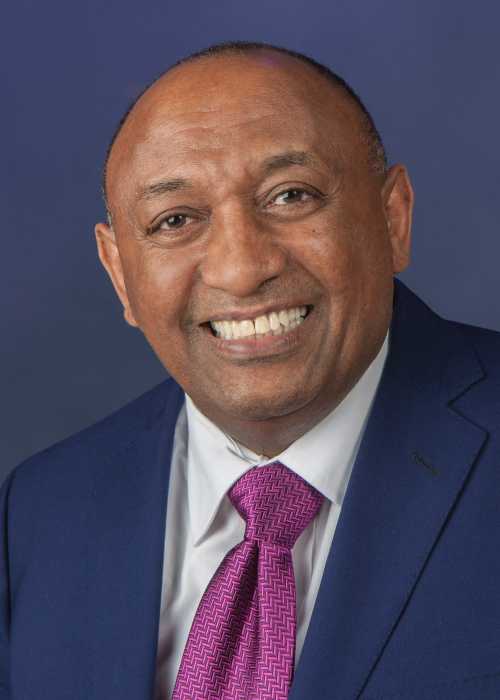
Kitaw Demissie
Dean, SUNY Downstate Health Sciences University School of Public Health

Dr. Demissie is the dean of the State University of New York (SUNY) Downstate Health Sciences University School of Public Health. He is an internationally recognized academic public health leader and researcher in the fields of health disparities and minority health. He has served in various public health leadership roles and contributed to diversifying the public health workforce. His innovative research has influenced public health policy in several areas, including perinatal health and cancer.
What influenced you to pursue a career in the health care field?
I was trained in medicine and public health. My realization that in medical practice, we treat one patient at a time, and its success depends on access and availability of treatment while diagnosing and treating the entire community, which prevents the disease from occurring in the first place, was the impetus to pursue a career in public health.
What is the biggest challenge currently facing New York’s health care system?
A high rate of uninsured and underinsured populations, coupled with racial and socioeconomic disparities in health outcomes, is a major public health concern. Moreover, health care workforce shortages, lack of access to ambulatory care as measured by hospitalization rates for ambulatory care-sensitive conditions, high cost of health care, lack of evidence-based payment models, cyber security, and fragmented care are additional challenges.
How do you describe your position to people outside of the health care industry?
As the chief administrative officer of the School of Public Health, the dean provides strategic vision and academic, intellectual, and operational leadership to the School of Public Health. The dean promotes excellence in all aspects of the school’s mission and priority strategic goals in education, research, and community engagement, integrates the school’s strategic plans with the university, and effectively communicates with the school’s constituencies.
What can policymakers do to ensure equitable access to quality health care?
There is no agreed-upon definition for equitable health care access, leaving policymakers needing a meaningful standard. Equal access (opportunity to utilize) to health care for those in equal need, excluding individual preferences, is a desirable policy objective. Policymakers can utilize various strategies to distribute health care resources across populations defined by income, social class, geographical residence, education, and race/ethnicity to provide access to a reasonable minimum standard of health care, irrespective of individuals’ ability to pay for health care.
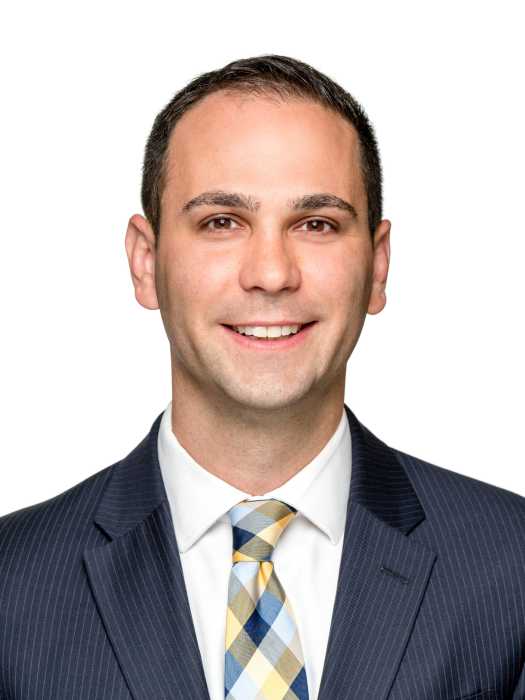
Victor DeStefano
President, Empire BlueCross BlueShield

As president of Empire BlueCross BlueShield’s commercial business, Victor DeStefano oversees health plans generating $4 billion in revenue and serving 3.5 million members, supporting Empire’s mission to improve the lives of all New Yorkers. Previously, DeStefano served as general manager and before that as regional vice president of sales. He holds degrees from Binghamton University and Columbia University. DeStefano serves as a mentor with American Corporate Partners and has a leadership role with Breaking Ground.
What influenced you to pursue a career in the health care field?
I wanted to improve health outcomes by shaping policy and systems. My Master of Public Health studies showed me the impact social drivers have on overall health. I was drawn to health insurance to ensure access to quality, affordable care through innovative programs and community partnerships.
What is the biggest challenge currently facing New York’s health care system?
Rising health care costs limit access to care. We must curb costs by enacting value-based models, implementing care coordination, leveraging technology, and addressing social needs. Competition and transparency can promote affordability while robust investments in housing, jobs, and nutrition improve health outcomes.
How do you describe your position to people outside of the health care industry?
I am responsible for the management of Empire local commercial group and individual business and for collaborating with elected officials, regulators, providers, employers, and other key stakeholders to drive improvements in health care access, quality, experience, outcomes, and affordability in New York. I am proud to work with a team of passionate and caring individuals committed to improving our members’ and the community’s health.
What can policymakers do to ensure equitable access to quality health care?
Policymakers should enable innovation in value-based care and virtual delivery while addressing social drivers of health. They need to balance cost controls with quality investments, promote transparency, listen to diverse community needs, and check that policies live up to equitable intent.
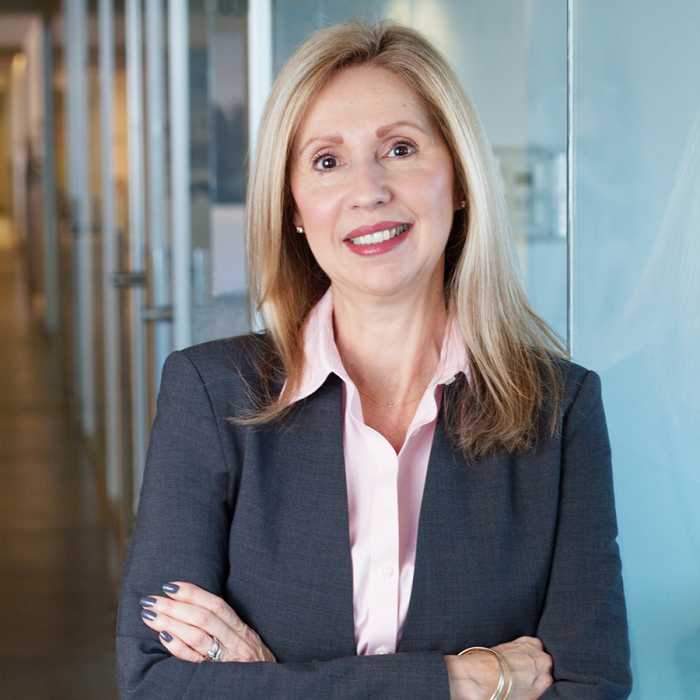
Emma DeVito
President and CEO, VillageCare

Emma DeVito is president and chief executive officer of VillageCare and VillageCareMAX Managed Care Plans. VillageCare is a community-based, nonprofit organization that offers managed care as well as post-acute and community-based programs. VillageCareMAX is one of the largest and fastest-growing plans in New York City.
What influenced you to pursue a career in the health care field?
Ms. DeVito’s health care career – with a concentration in finance, management, and strategic planning – spans more than 25 years. Ms. DeVito was extremely involved in VillageCare’s reconfiguration and reform of its long-term and chronic care services, shifting the emphasis from institutional care to community-based services. Her expertise and insight were essential to program expansion and new ventures.
What is the biggest challenge currently facing New York’s health care system?
Ms. DeVito serves on the boards of directors of AmidaCare (a Medicaid managed care plan for persons living with HIV/AIDS); ACAP; and previously served on the Brooklyn Health Home Board; Coalition of MLTC and PACE plans; and the Greater New York Hospital Association (GNYHA) as vice-chair of long term care. She currently serves on the N.Y. State Master Plan for Aging (MPA), which was designed to ensure that older adults and individuals of all ages can live healthy, fulfilling lives while aging with dignity and independence.
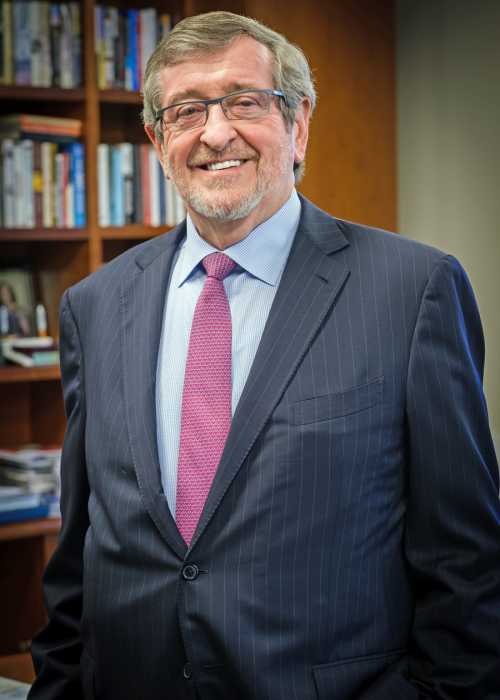
Michael Dowling
President and CEO, Northwell Health

Michael Dowling is one of health care’s most influential voices, taking a stand on societal issues like gun violence and immigration. As president and CEO of Northwell Health, he leads a clinical, academic and research enterprise with a workforce of more than 85,000. Northwell is the largest health care provider and private employer in NY, caring for more than 2 million people annually through a network of 21 hospitals and more than 890 outpatient facilities.
What influenced you to pursue a career in the health care field?
My interest in health care dates back to my childhood. My mother was deaf and my father was debilitated by arthritis, which kept him from working while my brothers, sisters and I were growing up. Unfortunately, my father and two brothers also struggled with alcoholism. While studying for my master’s degree in social work at Fordham, I began focusing on social policies, and that led me down the path of health care.
What is the biggest challenge currently facing New York’s health care system?
It’s the responsibility of every health system to close the gap in health care disparities. This begins with expanding access to primary care in underserved communities because primary care is often the access point for greater care. Health goes beyond delivery, however – it’s a lifestyle, good economic opportunity and the risk of falling victim to gun violence. In partnership with the government, health providers must improve socioeconomics in these communities.
How do you describe your position to people outside of the health care industry?
The leader of a health system must have a broad definition of the industry. Northwell’s broad definition includes committing to addressing public health issues like gun violence, food insecurity and education. As CEO, I also guide the organization’s strategy, vision and culture, including how it cares compassionately for patients. I set strategic goals and make sure that our mission begins with offering quality care for everyone, no matter what their financial situation might be.
What can policymakers do to ensure equitable access to quality health care?
Investing in primary care in underserved communities would go a long way toward expanding access and better managing the care provided to lower-income families, who often end up going to hospital emergency departments when they’re sick, which is far more expensive. The state also needs to invest more heavily in in-home care, which is especially important for seniors with chronic illnesses who often wind up in the hospital because their conditions are not managed properly.








